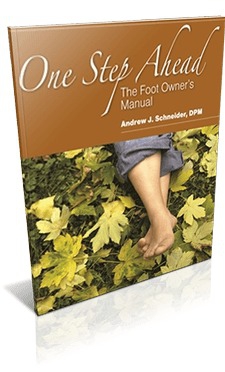
If you've been struggling to maintain a healthy weight, we know how hard the journey can be. But we also know that obesity can hurt your health in so many ways.
Right away, you'll have an increased risk for heart disease, diabetes and even cancer. But, it can also have a major impact on your daily life. Carrying excess weight limits your movement and your daily living options.
Depending on your state of mind, obesity can even impact your mental and emotional health, not to mention your foot health. Excess weight can lead to mobility issues, and if moving around is too hard, losing weight will be harder. And your cycle of pain and foot problems will only get worse.
Now, this is not a doom and gloom post. There are ways we can manage and relieve foot pain at any point in your journey with weight loss. But, because, knowledge is power we hope to raise awareness about obesity and foot problems to , together, we can raise awareness. And, hopefully, we can change your future health environment!
Obesity is a Growing Problem
According to the CDC, 43% of men and 42% of women were obese between 2017-18. And, while Ozempic and other weight loss drugs are helping, that's still a sharp rise from the previous study period, when just 20% of men and 25% of women were obese
Unfortunately, obesity and foot problems go hand in hand. In fact, an Institute for Preventive Foot Health study found that people who were obese displayed higher rates of foot problems and foot pain.
In their findings, people with a BMI (body mass index) of 30 or greater were 51 percent more likely to describe their foot health as fair or poor. They were also 41 percent more likely to be currently experiencing one or more foot issues. And 16 percent of obese respondents rated their pain levels between 7 and 10.
That's bad enough, but here's the real kicker. People in this BMI range were 32 percent less physically active, compared to people with lower BMI. Meaning they'll be less likely to lose weight through exercise.
Excess Pressure on the Arch
Why does obesity hurt your feet so much? Well, let's think about it. Your feet support your whole body. So, when you gain weight, you're putting them under more pressure. And that can cause so many problems.
Often, we see that patients with higher BMIs also have weak arches. (Which we also call flexible flat feet.) That's because excess pressure on your feet weakens the ligaments, muscles and tendons that support your arch. And, when that happens, your foot flattens, leaving you with pain. It could even displace or collapse your foot bones and joints, leading to pain in other parts of your body.
If your arches flatten, we can help support your feet with custom orthotics. And, we can also suggest exercises that can help reduce your pain and maintain your mobility.
One of these is easy to try and should feel really good. To begin, take off your shoes and socks. Take a seat on a chair and place your feet flat on the ground. Now, try to bring the ball of your foot closer to your heel. (But don't get your toes in on the action.) Once you notice doming in your arch, keep your toes still on the floor. And hold your foot in that position for about 10 seconds. Working with one foot at a time, you should aim for about 10 reps on each side.
Now, there are other exercises that can help relieve flat foot pain. And we can go over them in the office. But carrying extra weight also leads to other foot concerns. So I want to get to those right away.
Obesity and Foot Problems: Heel Pain ![]()
What starts as arch pain often leads to heel spurs (see image at right) and plantar fasciitis, for our patients carrying extra weight. And that leads to serious heel pain that may also bother your arch.
Why is that the case? Well, extra pressure on your feet stretches your plantar fascia. (That's the layer of fibrous tissue that connects your heel to your foot.) When your arch flattens, that stretching and pulling leads to inflammation, and lots of discomfort. Making matters even worse? Your BMI can actually impact inflammation in your body. You see, in this study, researchers discovered that higher BMI increases inflammatory markers in your body. In turn, foot pain increased by a noticeable factor.
But that's not all. Flat arches can cause overpronation. (That means your feet rotate too much as you move.) As a result, you walk on the outer edge of the foot. And, over time, this can twist your leg and foot muscles, changing your body shape. It can also up your risk for sprained ankles and overuse injuries like shin splints.
Even worse? Changing your walking pattern puts more pressure on your knees as well. In turn, the knee pain can change your gait. And that can leave you with hip and back pain, too.
Bunions
So many things, including your family history, increases your risk for bunions. But we also know that there's a link between obesity and your odds of forming these painful bony growths.
Here's why we think that's the case. People who carry extra weight tend to walk with shorter wider steps. And, as we mentioned, they may overpronate, or walk with their toes pointed outward.
These motions put pressure on the outer edges of your feet. And that can change the direction of the bones involved in bunion growth. So, if you're carrying extra weight, we should look at your current shoe choices. We'll also check your feet regularly for early bunion development. Because, if we catch small bunions, we can help prevent thir growth with minimally invasive treatments.
Arthritis
Addressing Obesity and Foot Problems![]()
We've already shared some ways you can manage your foot pain. As mentioned, custom orthotics can help support your arches. Together with foot exercises, they can relieve the pain associated with flat feet.
Still, the best path to relief will be getting at the root cause of your foot pain. So we'd like to help you lose weight. But we know that foot issues can make it difficult for you to exercise. Which is why we can help you increase your physical activity without hurting your feet more.
After all, some exercises put less pressure on your feet. While you probably aren't ready to run on pavement, a water-based jog could be a great choice. Even a nice long walk, taken at a moderate pace, could contribute to weight loss. (Be sure to choose supportive shoes and slip in those orthotics.)
Whatever your favorite activity, try to move your body every day. For at least 30 minutes. (Even if you can't sneak in one solid block of movement, five minutes here and there does more than you might think!)
We also want you to remember: you're not alone in your journey. If you're hoping to lose weight, or simply manange your foot pain, talk to your Houston podiatrist. When you request an appointment at our office, we'll help relieve your existing foot pain. And, if you want, we can set you up for a safe and effective exercise program.

















